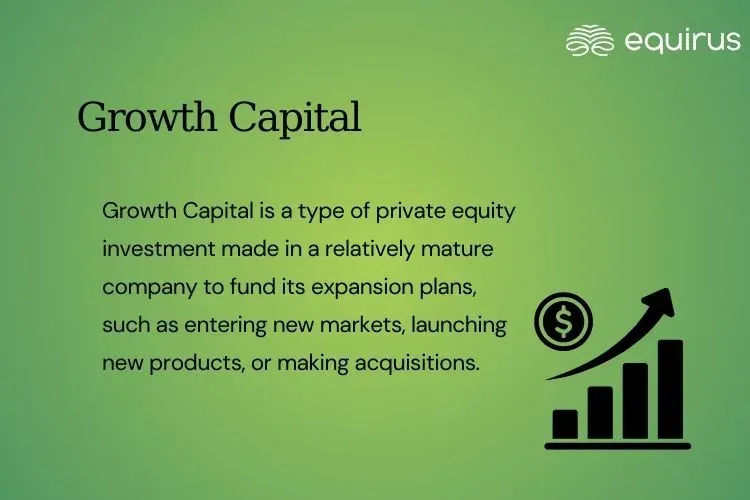Growth Capital

Key Highlights
-
Growth Capital, also known as expansion capital or growth equity, is a type of private equity investment made in a relatively mature company to fund its expansion plans, such as entering new markets, launching new products, or making acquisitions.
-
It is typically provided in exchange for equity ownership, but without taking control of the company.
What is Growth Capital?
Growth Capital, also known as expansion capital or growth equity, is a type of private equity investment made in a relatively mature company to fund its expansion plans, such as entering new markets, launching new products, or making acquisitions. It is typically provided in exchange for equity ownership, but without taking control of the company.
Purpose of Growth Capital
Growth capital is used by companies that:
- Are already profitable or close to profitability
- Do not want to take on more debt
- Want to scale operations, increase market share, or accelerate growth
- It helps them grow faster than they could with internal cash flows alone.
Key Features
| Feature | Description |
|---|---|
| Stage of Company | Late-stage startups or mature businesses |
| Type of Funding | Equity or quasi-equity |
| Control | Investors usually take minority stakes |
| Use of Funds | For growth—not for buying out existing shareholders |
| Risk Level | Lower than venture capital, higher than buyouts |
Common Uses of Growth Capital
-
Geographical expansion
-
Product line diversification
-
Entering new customer segments
-
Upgrading infrastructure or technology
-
Strategic acquisitions
Growth Capital vs. Venture Capital
| Aspect | Growth Capital | Venture Capital |
|---|---|---|
| Stage | Later-stage | Early-stage |
| Profitability | Usually profitable | Often pre-revenue |
| Risk | Lower | Higher |
| Ownership | Minority stake | Sometimes controlling stake |
| Purpose | Scale operations | Build operations |
Investor Perspective
Growth capital investors seek:
- High-growth companies with proven business models
- Strong management teams
- Clear exit strategies like IPOs or acquisitions
They earn returns through:
- Equity appreciation
- Eventual exit from the investment (e.g., IPO, strategic sale)
Examples in the Indian Context
- OYO receiving late-stage funding from SoftBank to expand globally
- Byju’s raising growth capital to enter international markets
- Zomato receiving expansion capital before its IPO
